#wis 3
Text

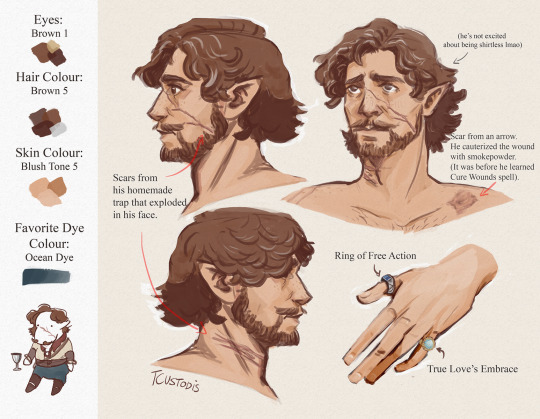

Connecticut Tav | Wood Half-Elf | Beast Master Ranger
So, this is my sheet for @bareee's @tav-dex. Went a little overboard and made a whole ass character sheet (man the last time I made one of those was so long ago). I want to write something about my cringe boy so. Buckle up because it's going to be long and poorly written (I suck at writing).
One edit because I'm a dummy, his alignment is neutral good not true neutral idk why I did that.
He was born and raised in his mom's and step-dad's tavern called Crow's Perch (not as fancy as Elf Song but in a different category as Blushing Mermaid)(the tavern thing is just for the sake of a joke that the most popular drink they serve is called 'Connecticut Water'). He has an older brother, who's a bard. Despite the description for Urchin background ("After surviving a poor and bleak childhood") he had a happy childhood, filled with love and support. The two brothers treated the whole Lower City as their playground: breaking into places just for fun, pick pocketing nobles, climbing Wyrm's Rock Fortress etc.
His love for beasts and creatures of any kind comes from the stories told by his step-dad (both him and Tav's mom are retired adventurers). Step dad was the one who told Tav about Darkmaw the Wicked *wink wink*.
At one point he got tired of the city life and decided he wanted to become a ranger. After successfully fulfilling some contracts he became so confident of his skills he tried to build a trap all by his own. The trap exploded right into his face (he himself has no idea how it didn't kill him or damaged his eyes). After that he was sulking in his hunting hut for a month. The experience humbled the boy. Most of his adventuring prior to the nautiloid could just be boiled down to hanging around one village and talking local boars out of destroying potato fields, and occasionally getting rid of poachers.
Before the abduction he was on his way to Baldur's Gate to see his family (which he hasn't seen in months).
Trivia (because it's easier to write stuff this way):
His hair started to go grey at the start of Act 3 from the weight of responsibility and stress.
In Act 1 he was corresponding with his family thanks to Faust. After entering The Underdark he stopped sending letters (In Underdark because it would be hard, in Act 2 because he didn't want the bird to be killed by Shadow Curse).
Despite being close to his family in Act 3, he didn't visit them or send any messages in fear that Gortash and/or Orin would hurt them.
He carries with him a razor and some fancy oils for his beard.
His brother wrote one ballad about him, soon after that Tav forbid him from writing more (it was very much not accurate).
His step-dad taught him how to fight with a sword, while his mom taught him archery and the art of stealth.
Tav's biological father died when he was very young so he has barely any memory of him.
Tav's a walking Merlin app, he can identify any bird by just listening to it.
He loves climbing trees. Either to rest on a branch or to scout the surroundings.
He loves picking up herbs and making potions.
Despite growing up in a tavern he's not much of a drinker.
He's very self-conscious about his height and chest-to-belly area. He tries his best not to show it.
At one point he was persona non grata at Sharess' Caress.
He enjoys fishing.
Sir Daisy Dewdrop Fluffington is a name of his childhood plush.
He knows how to play lanceboard (he often plays against Gale and tries to teach it to Wyll).
He draws in his journal. He drew all of his companions at least once.
He almost cried when Jaheira called him 'cub' and almost called her 'mom' in response.
He's scared of Lae'zel. But tries his best to understand and help her.
He had countless heart-to-hearts with Karlach.
In his journal he described Astarion as 'his equal on the battlefield'.
#bg3#baldur's gate 3#connceticut tav#character sheet#tav#oc:faust#i accidentally hit post while editing it lmao well this is the final version dhjdjd#the fact tav and faust have the same wis is sending me
419 notes
·
View notes
Text

I'm a little worried we're not going to get bingo by the time we save Faerun fam
| First | | Previous | | Next |
[[ All Croissant Adventures (chronological, desktop) ]]
[[ All Croissant Adventures (app) ]]
#we did have to save scum here#if I had KNOWN it was going to be a DC25 wis save with +0 wisdom I would not have CHOSEN THE OPTION TO RESIST THAT WAY#I felt no remorse squishing that bug the emperor should've known better than to give me that#oh!! right we're officially in act 3 now!!#bg3#baldur's gate 3#bg3 spoilers#act III spoilers#THIS IS A BIG SPOILER DON'T LOOK AT THIS IF YOU HAVEN'T HIT ACT 3 LMAO#croissant adventures#tav#the emperor#comics
634 notes
·
View notes
Text
What is up tumblr people. I submitted this emoji to the tadc carnival discord server and it got approved! Carnival Jillz eating your art is now an approved emoji!

Carnival au and sibling au by @sm-baby
(If you didn’t know Jillz is the sibling of jax)

Just look at her little face. She gonna eat the whole thing And you can’t stop her. And you know me I had to add a Kaufmo reference in there because I didn’t know what else to put in the frame.
#got some stable Wi-Fi at the moment so gonna post now#it was between carnival Jillz or bubble eating art#tadc#MintySweetArt#the amazing digital carnival#the amazing digital circus#tadc Jax#tadc Jillz#Jillz#carnival au#tadc carnival au#live laugh Kaufmo <3#artists on tumblr#digital art#fanart
200 notes
·
View notes
Text
AFTER AN OVERWHELMING WAVE OF SUPPORT AND ENCOURAGEMENT, I'VE DECIDED TO POST THE WILL WOOD ESSAY!!!! it's below the break !!!!
I would like to really quickly state though that this essay is my property, I put a lot of time and effort into this, so please don't claim it as your own !!!! thank you <33
I will be analysing Will Wood’s song ‘Suburbia Overture / Greetings from Marybell Township! / (Vampire) Culture / Love Me, Normally’. which, for simplicity, most fans refer to as simply ‘Suburbia Overture’. This song is the first on his first solo album entitled ‘The Normal Album’, which came out in July 2020.
This song, in the most general possible terms, is a criticism of modern suburban life, how it is advertised as “the perfect life”, and how this advertising is incredibly false unless you fit the picture perfect standard that these facets of society seem to require.
The song itself is split up into 3 distinct sections, "Greetings from The Marybell Township!", “(Vampire) Culture” and “Love Me, Normally”. I'll be tackling each section one at a time in order to properly break down what each means, what different analogies they use, how they all relate to each other and the intended end result of the song and the message it intends to convey.
Let's begin with 'Greetings from The Marybell Township!'.
This section of the song uses a lot of analogies that compare suburban life to a warzone, the first line of this section being “white picket fences, barbed wire and trenches”. This section also focuses heavily on the concept of the nuclear family, and it often literalises the term and uses analogies based around radiation and nuclear warfare. Such analogies can be found in lines such as “the snap crackle pop of the Geiger, camouflage billboards for lead lined Brookes Brothers”. Now there's a couple of terms that require definitions in this line. The first of course being “the Geiger”. A Geiger counter, which is what this lyric is referring to, is a tool used to measure levels of harmful radiation. This, paired with the concept of billboards advertising “lead-lined Brookes Brothers” when lead is a material used to deflect radiation, and the knowledge that ‘Brookes Brothers’ is an American vintage style clothing brand, this line really paints a picture of a seemingly post apocalyptic/post nuclear war but still consumerist and capitalistic suburban society. The last line in that verse is “buy now or die”, which ties back to the concept of safety equipment being advertised on billboards, while residents of this town have no choice but to buy the products. This all relates back to the hyperconsumerism that plagues our society, and runs particularly rampant in middle to upper middle class neighbourhoods. The very same neighbourhoods that are often referred to as “suburban”
In the second verse of this section there are a lot of hard hitting lyrics that to me really show that this perfect idealised life is far from perfect or even good, so we will work through them one by one because I feel that they all deserve proper analysis.
The first line that i want to point out from that verse is the line “takes a village to fake a whole culture” which is clearly a rip off of the phrase “it takes a village [to raise a child]” but it also references the fact that usually suburban towns are incredibly monotonous in both residents and architecture, and so it takes the collective effort of the entire population of the town to pretend that there is an actual culture to it.
The next few lines I'll speak on all come in quick succession of one another, essentially blending them into one line.
“Your ear to the playground, your eye on the ball, your head in the gutter, your brains on the wall.”
So let's break these down. This line is easily split into 4 distinct phrases, and all of these phrases have a few things in common, which I will point out later.
“Your ear to the playground” is a play on the phrase “ear to the ground” which essentially means that the person with their ‘ear to the ground’ is attempting to carefully gather intel about something. Someone having their ear to the playground simply reinforces the idea of this suburban “paradise” being. Not as paradise-y as one would hope, seeing as the people who use playgrounds most of all are children, so this line is demonstrating that the picture perfect life that this suburban town offers is actually corrupting children so young that they are still on the playground.
The next phrase is “your eye on the ball” isn't a play on anything and is in fact in itself a common phrase. To have your eye on the ball means to be entirely focused in and paying attention to something, and not allowing anything to divert your attention. Given the last line this line very well could be another reference to the corruption of the youth and the idea that their every day play has already been tainted with the hostilities of modern life usually reserved for adults.
Following this is another well known saying “your head in the gutter” which, as most know, someone whos head is ‘in the gutter’ is someone who will see some sort of innuendo or otherwise vulgar/inappropriate meaning in something that was intended to be entirely innocent, leading to others in the interaction telling the perpetrator to ‘get [their] mind out of the gutter’
And finally, in my opinion the most hard hitting phrase in this set, “your brains on the wall” which is clearly in reference to the notion of ending your own life with a shot to the head, which would lead to, well, brains being on the wall. These last 2 phrases come in stark contrast to the seemingly picture perfect life that suburban towns offer and advertise, the concepts of suicide and perversion are not concepts one expects to see or hear when imagining this idealised form of life.
There is one main similarity in each of the 4 phrases, that being that each phrase has some body part being on something else, your ear to the playground, your eye on the ball, your head in the gutter, your brains on the wall. This similarity almost offers a body horror aspect to the song, which when paired with the concept that this is written about a seemingly post nuclear apocalyptic town presents an interesting idea of possible mutation, but i'll be the first to admit that may be a little far fetched. However that's not the only similarity that these 4 phrases share, another is the fact that they are all directly, or only slightly modified versions of already well known phrases, a similarity that is found in many lines over this entire song, through all 3 sections.
I want to analyse a few more lines before we move on to the second section of the song.
This next line comes directly after the previously analysed line, and it goes “home is where the heart is, you ain't homeless, but you’re heartless”
Sticking with the theme of using already existing and commonly used phrases, “home is where the heart is'' is once again a phrase that you could likely find as a cross stitch hung up on the wall of any of the homogenous houses you could likely find in this idealised suburbia. But what Wood is saying in this line is that home is where the heart is, and that while people in this town may not be homeless, they are certainly heartless, meaning that they in fact don't have homes. They have houses. Rows upon rows of houses that all look the exact same in the horrifying monotony that is suburban living.
Following this line is the lyric “it's the safest on the market, but you still gotta watch where you park it”. These lines seem to be in reference to buying a car. The car being the "safest on the market" is likely in reference to the fact that it may have a lot of safety features. But this is immediately negated by the fact that you “still gotta watch where you park it” meaning that the safety features could be a reason that the car gets stolen, rendering all the safety that those features offered useless because in the end it made the car and the owner less safe.
In the third verse of this section, you immediately hear the line “so give me your half-life crisis” which partially is a play on the term ‘mid life crisis’ wherein which one realises that they may have wasted their life up till that point and they're already halfway through, but the use of the term “half-life” instead of ‘mid-life’ is very intentional, as the term “half-life” can also be used to refer to the half-life of an isotope, which is the amount of time that isotope takes to lose half of its radiation, which ties back into the theme of radiation that we see mentioned a lot in this section.
Later in the same verse is the line “if it's true that a snowflake only matters in a blizzard”, which is interesting in a few ways, first, it brings up the idea of a singular individual means nothing on their own and that they only matter when they’re part of something larger or a larger group, but i also think that the use of the terms “snowflake” and “blizzard” instead of something like ‘raindrop’ and ‘storm’ is very intentional in the fact that snowflakes are known for being individual, none are alike, every single one is different. So saying that a snowflake doesn't matter unless it's in a blizzard is yet another hit at individuality, essentially implying that in this town individuality means nothing and is essentially rendered useless.
The final line in this verse is “everybody's all up in my-” repeated thrice, and on the third time the sentence is finished to say “everybody’s all up in my business” and before the word “business” can be finished its overlapped with the beginning of the chorus, the first word of which is a very loud “SUBURBIAAAA!”. I believe this is reminiscent of the fact that in towns like this, everyone cares so much about what everyone else is doing, they’re all so interested in everyone else's business, and i think that sentiment being stated and cut off by the word “Suburbia” is essentially saying that ‘this is the norm, this is just Suburbia, this is how it works around here.’
After the final chorus of this section, in the final verse, you'll find the line “chameleon peacocks are talk of the town” which particularly interests me because if you know anything about chameleons or peacocks you’d find that they seem incredibly different as animals. Chameleons blend into their environment in order to stay safe, whereas peacocks are known for parading around bright colours to make themselves look better, but if you think about it the term “chameleon peacock” actually makes a lot of sense, a person who blends into their surroundings in order to make themselves look good. This sentiment seems to perfectly describe the homogeneity of the people that live in these perfect towns, they're all the same, they blend in with one another in order to make themselves look good, or perfect.
Another line heard shortly afterwards is the phrase “he cums radiation”, rather vulgar, I grant you, but it's important because it is yet another literalisation of the phrase ‘nuclear family’. It could also be a reference to the general toxicity of this societal norm.
The final line in this section of the song is “the dog bites the postman, as basement eyes dream of a night at the drive-in, with an AR-15”. Which is another use of juxtaposition, intended to cause a kind of whiplash in the listener and reinforce the idea that while in this place there is scenarios that would happen in a hollywood movie esque picture perfect neighbourhood, like the dog biting the postman, there's also horrors that lurk below the surface. (although clearly not TOO far below.)
Now let’s move on to the second part, ‘(Vampire) Culture’.
If you listen to the song, you’ll immediately be able to recognise where 'Greetings from The Marybell Township!' ends and ‘(Vampire) Culture’ begins, due to the insane juxtaposition between the two. Where 'Greetings from The Marybell Township!' is soft and sort of reminiscent of the 1950’s, ‘(Vampire) Culture’ is loud, jarring and grotesque, complemented with much raspier and strained sounding vocals compared to 'Greetings from The Marybell Township!' ’s soft and melodic ones. The tone for this section of the song is immediately set with much more graphic lyrics, the very first line of this section (after the opening scream) is “i dropped my eyeballs in the bonfire, we fucked on a bed of nails” which absolutely sets the scene for how different this section will be to the previous.
This song immediately jumps into using cannibalism as a metaphor, with the first line after the jump start opener being “I caught kuru from your sister, and I'm laughing in jail”. While this line is written to sound like the concept of catching an STD from an act of adultery, Kuru is actually a disease only found in human brain tissue, meaning that you can only contract this disease by eating a human brain, and what's one of the symptoms for this disease? Uncontrollable laughter.
This use of cannibalism as a metaphor is used again immediately after in the line “smell those screaming teenage sweetbreads on that 4th of July grill”, ‘sweetbread’ is the term used to refer to the pancreas and thymus gland of an animal, usually a lamb, but in this particular case it is in reference to the human teenagers that supposedly lived in The Marybell Township, or a least they did before they were dissected, cooked and served at a neighbourhood 4th of July barbeque hosted by the same people that were once referred to as their neighbours.
This line adds an interesting level of patriotism to the song and criticism of how America utilises patriotism and their love for their country as means to justify harming the youth, however a 4th of July neighbourhood barbeque is also commonly associated with white picket fence gated community America, which ties us back to the base criticism of that style of life and how it is seen as the “proper” and “perfect” way to live.
These cannibalistic sentiments are followed up with the line “smile and wave boys, kiss the cook, live laugh and love, please pass the pills.” which brings us back to the repeated use of commonly known sayings being taken directly or modified only slightly to remind the listener of the setting were in, that being a seemingly 1950’s era tight knit neighbourhood.
Phrases like “live laugh [and] love” or “kiss the cook” are both phrases that could easily be seen in a setting like this, especially “kiss the cook”, as this is a phrase commonly associated with aprons worn by grillmasters at neighbourhood barbeques, not unlike the cannibalistic 4th of July barbeque that this particular neighbourhood seems to be hosting.
These phrases being immediately followed up with a sentiment such as “please pass the pills” serves to entirely undermine the pleasantries that, until a moment ago, seemed to be plastered all over the faces of the people living in this fictional town that Wood has created. I think that final phrase brings the listener back to the realisation that not all is right here, quite the opposite in fact, and drags them from their momentary paradise.
Circling back very quickly to the phrase “smile and wave”. I felt the need to point out that this phrase has been used for centuries as a way to say “stop talking and act normal” which once again reinforces that these people are pretending to be something they’re not in order to fit in.
We enter the next verse with the repeated phrase “it's only culture”, after that line is repeated three times we hear “sulfur, smoke and soot”, which could either be a reference to how dirty and disgusting the ‘culture’ is, or it could be a different way of saying that this culture and the people participating are going to hell, as per the common phrase ‘fire and brimstone’ and the fact that sulfur is another way of saying brimstone, and smoke and soot are both byproducts of fire.
The last line of this verse and the first line of the chorus blend into each other, so I’ll speak on them both.
First, the last line of the verse. It goes “you cocked and sucked your lack of empathy, pulled the trigger with your foot to prove you've got-”
Putting aside the clear innuendo, this line refers to the idea of ending one's own life with a long shotgun. According to the media, by the time the gun is cocked and the barrel is in your mouth, you're not able to pull the trigger with your hands due to the length of the barrel. This line instead presents the solution of pulling the trigger with your foot to end your life.
So this person “cocked and sucked” the gun (cocked the gun and put the barrel in their mouth) before pulling the trigger with their foot to prove they’ve got-
And here's where the verse blends into the chorus.
Because the first line only consists of one word.
“Blood”.
The person who was shooting themselves with a shotgun only to prove that they bleed. Which is where the title of this section comes in. “(Vampire) Culture”. This section seeks to portray either the people in this culture or, the more likely option, the culture itself, as metaphorical vampires, who aim to destroy those around them. This knowledge makes the next line “didn't they want your blood, so why apologise for being blue and cold” make a lot more sense. After all, if these culture vampires have drained you of your blood, is it not their fault that you’re now “blue and cold”, as bodies tend to be if they lack blood flow. However, if you look at synonyms for the words “blue” and “cold”, you could also interpret this phrase as meaning “sad and apathetic”.
A sad and apathetic person doesn't seem to be the kind of person this ‘culture’ seeks to enlist however, and so one who is “blue and cold” is shunned as an outsider.
What Wood is getting at is that if this culture is the one who made you sad and apathetic, then you should not apologise to it for being so.
The next verse is short, and like the previous one, also blends into the chorus in the same way, by having the last line of the verse cut off right where the chorus would finish the sentence with the word “blood”. However in this verse, there's an interesting line. “It's only culture and it's more afraid of you than you are of it”, which is a sentiment usually used by adults to attempt to subdue a child's fear of something, usually insects. However it's interesting in the fact that it brings up the idea that this culture that has caused so much damage and harm is actually incredibly fragile, and would, in theory be very afraid of the concept of the individual, because if this ‘culture’ is only being held together by the silent agreeance that everyone will simply pretend, then the idea that there is people who refuse throws the whole idea into jeopardy.
This line is followed up however, by the line that blends it into the chorus. “Go on drink that-”, clearly intended to be finished by the first line of the chorus, making the full line, “go on drink that blood”.
This line is in reference to the phrase “drink the kool-aid” which essentially means to pledge your undying loyalty to something, a concept, a person, a god, etc. and it derives from an infamous mass cult suicide where over 900 people drank poisoned Kool-Aid and subsequently died for the cult. It is not a far cry to believe that this event and this phrase is what the line is referring to, as it's something that Wood has referenced in other songs, so it only makes sense to believe that this is what he means here.
After that chorus we move on to the bridge, which begins by listing 3 pairs of names, all famous or semi famous, and each pair being similar in one right but opposite in another, the line goes as follows; “were you Nabokov to a Sallinger, were you Jung to Freud or Dass to a Leary”, so let's break down these pairs one by one.
First “Nabokov to a Sallinger”, these names belong to Vladimir Nabokov and J.D. Sallinger, both authors who wrote famous books that both surround the theme of innocence, but in very different ways. Nabokov’s book “Lolita” is a story told from the perspective of a grown man about his sexual obsession and attraction to a little girl, and his desire to ruin her innocence, exploring the theme of innocence in a grotesque and frankly horrifying way, which is in stark contrast to Sallinger’s book “The Catcher in the Rye”, which explores the topic of innocence through the main characters desire to preserve their little sisters innocence, and in that desire displays hesitancy at the idea of sex themself. Both books explore the topic of innocence, however while one seeks to preserve it, the other seeks to destroy it, two sides of the same coin.
The next pairing is “Jung to Freud”, meaning Carl Gustav Jung and his mentor Sigmund Freud, who once again are similar in one right, but opposite in another. Jung and Freud both had theories on the nature of the human mind, but where Jungs was all about the concept of spirituality and how that ties into the collective unconscious, Freud's approach was much more focused on the individual unconscious and the concept of sexuality.
The final pairing is “Dass to a Leary”. both psychologists, both at the forefront of the ‘Harvard Psilocybin Project’ (before they both got dismissed from harvard entirely following controversies around the project) Richard Alpert and Timothy Leary were both psychologists and eventually authors who studied the effects of psychedelic drugs on the human mind, and while they were co workers they ended up with pretty conflicting views. Dr. Richard Alpert, who apparently ‘died’ and was ‘reborn’ as spiritual guide Ram Dass, centred his teachings heavily around the concept of living in the moment, (in fact his best selling book, written in 1971 was titled ‘Be Here Now’) and he believed that psychedelic drugs were not needed and that a permanent version of the same effects could be achieved through meditation. Whereas Dr. Timothy Leary advocated heavily for the use of psychedelics, believing that LSD specifically had great potential for therapeutic psychiatric use.
All of these pairings and examples utilise the concept of duality and speak on how every coin has two sides, which can easily be tied back to the idea that the picture perfect suburban life is just one side of the coin. This idea is then reinforced by the next line, “were you mother, daughter, subject and author?”, The use of the word ‘and’ here shows that it's possible to be two sides of the same coin at once, just like how this town, which is perfect on one side of the coin, is still terrible on the other side of the coin. The line is stating that it's possible to be both at once.
The very last line in this section is; “you don't make the rules, you just write them down and do it by the book you throw around”. This line combines a few relatively well known phrases. The first being of course ‘i don’t make the rules’, which can have two distinct meanings. The first is to express a kind of sympathy for someone being punished, and the second is to absolve yourself of the blame for that person being punished, a sort of ‘don't shoot the messenger’ situation.
The ‘rules’ that are likely being referred to here are the societal norms and expectations forced upon people who reside in these towns, the standard for ‘perfection’.
However, following this sentiment up with the phrase “you just write them down” is essentially saying that while it's not the fault of the people in these towns, they didn't create the norms, they still enforce them. They expect everything to be in line and perfect at all times, they follow these ‘rules’ to a T, and they shun and punish anyone who doesn't fit the standard and/or refuses to follow these ‘rules’, which is where the line “do it by the book you throw around” comes in, doing something ‘by the book’ means to follow rules strictly and to the letter, nothing out of line, and to throw the book at someone means to punish them as severely as possible, usually used in the legal sense to mean punishing someone for their crime as severely as the law will allow. So in all, the lyric “you don't make the rules, you just write them down and do it by the book you throw around” ends up meaning ‘you didn't create these norms but you still enforce them by following them to an absolute T and punishing anyone who doesn't.’
With that we enter the third and final section of the song, entitled ‘Love Me, Normally’, a title it shares with another song on the album, but of course this song is partially meant to serve as an overture for the whole album, meaning it shares some similar lyrics with lyrics from other songs on the album, so sharing a title isn't all that surprising.
The first lyric in this section is “do you know the difference between blazing trails and slash and burn?” which is another instance of duality in this song. Trailblazing or being a trailblazer means doing something no one has done before, paving the way for other people to follow in your footsteps, it comes from the literal act of creating a trail in the woods for people to follow, usually by creating notches in trees or setting small fires, hence ‘blazer’, as blaze is another word for a fire. However “slash and burn” is a method of deforestation that involves cutting down and burning a section of forest to create a field. Both examples include using fire to change something, but where one is seen as progress and positive, the other is negative, and seen as a means of destruction. Once again, two sides of the same coin, innovation and destruction.
This is followed up with the line “going against the grain and catching splinters”, which is a line i particularly like because while it is something that literally can happen, if you run your hand along wood in the opposite direction to the grain, you're more likely to get a splinter because you're essentially pushing your hand against the chips of wood, but it also is another metaphor for the dangers of not being the same. Going against the grain in this instance means daring to be different, not going the same way everyone else is going but instead the opposite of that, and in this example splinters are the consequences one would face for being different, especially in a setting like this perfect town, where everyone is the exact same as everyone else.
A little bit later you hear the line “well Lot he had his lot in life, Job his job and i guess you’ll too, and die”.
Lot and Job are both figures found in the Bible, whose names both share spelling with common English words, but are pronounced slightly differently.
Job, from the Book of Job, was a man that was tested by God, made to suffer to test his loyalty, his ‘job’ was to believe unendingly in God and see Him as always correct no matter what.
Lot, from the Book of Genesis, was a man who went through a lot, and the phrase ‘my lot in life’ is a phrase commonly used by people to write off/explain why they don't have it as good as others, they say it's simply their ‘lot in life’.
The end of this line “i guess you’ll too, and die” i believe refers to the fact that everyone will have their own job and their own lot in life, and then everyone in the end will die.
This theory is solidified by the fact that the next line is “The Lord looked down and said ‘hey, you're only mortal’” which is a play off of the phrase ‘you're only human’. Wood himself said that the phrase ‘you're only human’ has always felt weird to him, he says, “cause like, of course I am, aren’t we all? How is that fact supposed to help? I still feel bad. What does being human mean to you?”. He follows this up by saying that the idea of God saying "hey, you're only mortal" offers the same kind of sentiment, but in a “cosmically condescending” sort of way.
The following line reads “giveth and taketh away, till things come out a certain way, leave you wondering when they might go back to normal… leave you wondering why they can't have just been normal”.
This line presents a sort of hopelessness in the realisation that things are constantly changing, nothing is any more ‘normal’ than anything else, there's no such thing as ‘normal’, which is an overarching theme found throughout the album. Once again bringing back the fact that for all intents and purposes this song is an overture for the rest of the album.
To conclude, ‘Suburbia Overture’ is, in my opinion, one of the greatest criticisms of suburban, middle class, gated community, nuclear family life i've ever seen, it highlights the problems in that life and showcases how this kind of lifestyle in its incredibly rigid and restrictive standards is incredibly harmful to the very concept of individuality, because the expectations and unspoken rules set in communities like this and the widespread idea of forced normality seeks to crush any individuality before it even has a chance to blossom.
The use of metaphors and phrases that are well known and are likely to be seen in settings such as this gated community suburban town that Wood has created really paint a subconscious picture of what this community looks like, the use of duality, how every story has another side, and how nothing that is seemingly perfect from the outside is actually perfect on the inside.
Will Wood is an incredible lyricist and the fact that he was able to cram so much symbolism and such a powerful message into a song just over 6 minutes long is genuinely incredible.
Thank you for listening to my/reading my autistic hyper fixated rambling, i hope i didn't melt your brain too badly <3
#onyx fandom posting#onyx is rambling#will wood#wi wo#wee woo#will wood and the tapeworms#wwatt#wwattw#will wood the normal album#the normal album#will wood tna#suburbia overture / greetings from the marybell township! / (vampire) culture / love me normally#suburbia overture#greetings from the marybell township#(vampire) culture#love me normally#essay#analysis#song analysis#<33#:3
174 notes
·
View notes
Text

Temptation, old friend, we meet again.
#high int low wis life <3#we love to see it#bg3#gale dekarios#gale of waterdeep#baldurs gate 3#bg3 gale#gale bg3#virtual photography#bg3 virtual photography#bg3 screenshots#bg3 screencaps#gale posting#galeposting#gale brainrot
100 notes
·
View notes
Text
something about me is that i’m a sucker for ships where both people are traumatized and they find love & build a good life anyway. despite despite despite etc.
#i eat that shit UP#if they’re not victims of severe trauma…i don’t want it <3#kanej#everlark#luke x mara#project: wi
1K notes
·
View notes
Text








Bucky Barnes
What if...? Season 3 Teaser
#marvel#avengers#marveledit#mcuedit#buckybarnesedit#wintersoldieredit#bucky barnes#the winter soldier#what if...?#what if season 3#what if spoilers#wi spoilers#spoilers#mcu#marvel cinematic universe#disney+#animation#marvel television#avengerscompoundedit
280 notes
·
View notes
Text
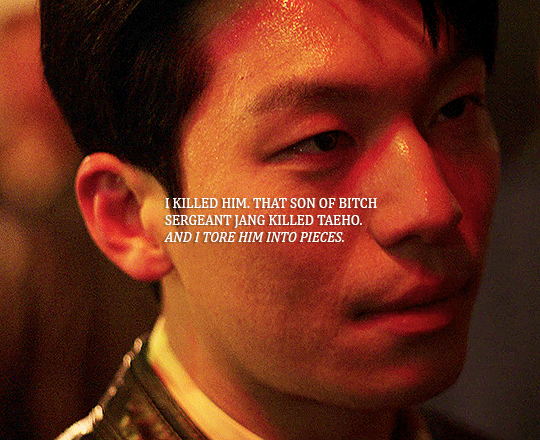
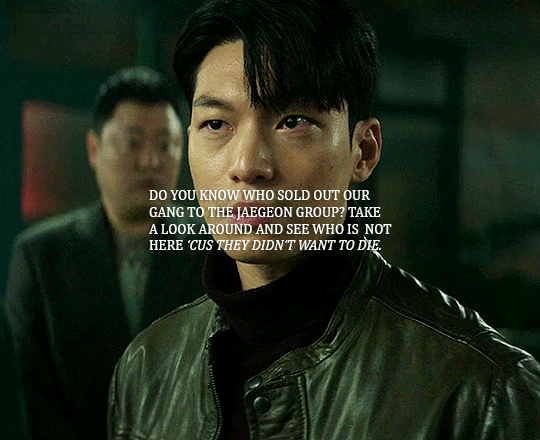

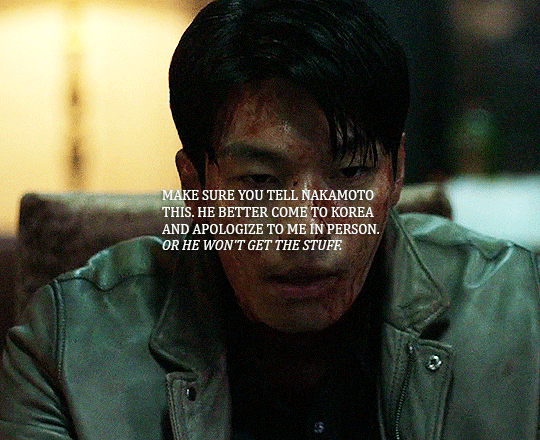
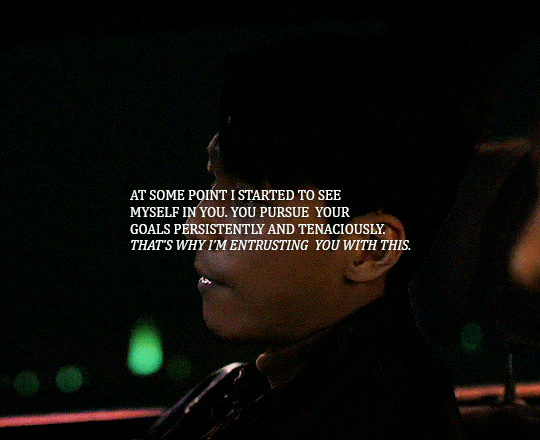
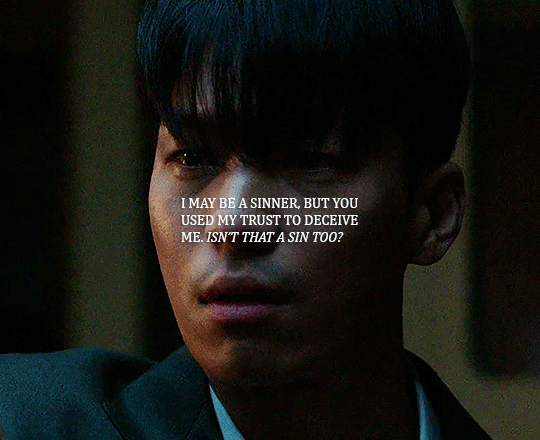
"A THUG, IT'S WHAT EVERYONE CALLS ME. THEY'RE NOT WRONG THOUGH."
― WI HA-JOON as JUNG GICHEUL in THE WORST OF EVIL (2023)
(@asiandramanet creator bingo — quotes)
#the worst of evil#wi ha joon#kdramagifs#asiandramanet#wi ha jun#kdramaedit#korean drama#kdrama#gif 3#bingo tag
253 notes
·
View notes
Text

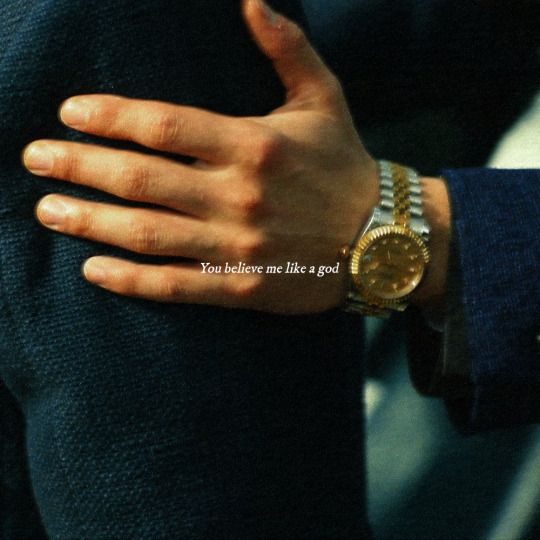




You'll have to pay for it while you're alive.
#the worst of evil#twoe#kdramaedit#kdramadaily#asiandramasource#asiandramaedit#dailyasiandramas#ji chang wook#wi ha joon#userjinki#usersrin#tusermona#*gfx#<3#you believe me like a god. i betray you like i am.#the worst of evil spoilers
298 notes
·
View notes
Text

Pineapple people
#thrifting#shiftythrifting#submission#in stevens point wi that one 3 floor store iykyk#salt and pepper shakers#pineapple heads#housewares
86 notes
·
View notes
Note
Your Tav gives me very much 8 intelligence vibes(in a good way)

Tav did not misunderstood, Tav is just really dumb… 🌝

#Tav is a potato given a free will by the gods#she just a classic high wis low int tav#wise enough to not disturb tara#stupid enough to stand up while tara is still sitting on her#baldurs gate 3#bg3#baldur's gate iii#baldurs gate fanart#baldurs gate tav#bg3art#oc#bg3 tara#tara#tav#bg3 tav#bg3 posting
162 notes
·
View notes
Text
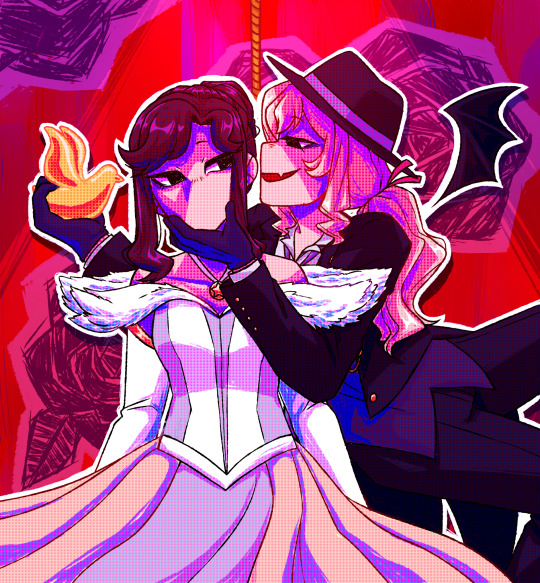
"For heroes, there are trials.
For saints, there are temptations.
For me, there is a Devil."
Of course, gotta tag my own little devil @yakusokutower <3 ^^ I did say when we watched it that I would end up drawing these two sooner or later XDD
#Revue starlight#maya tendo#tendo maya#Claudine Saijo#Saijo Claudine#Revue of Souls#kuromaya#Such a good revue X'DDDDDD#so beautiful..#so gay..#:'3#wi(l)d screen baroque might be my favorite song of the movie#but this whole revue is my favorite scene#just#demon Claudine X'3333333#maya saying this phraseee dkdhiddohkfh#THAT ENDINGG#perfect.#best ship.#my art
314 notes
·
View notes
Text

Hey this is pretty messed up.
| First | | Previous | | Next |
[[ All Croissant Adventures (chronological, desktop) ]]
[[ All Croissant Adventures (app) ]]
#HATED THIS#HATE GORTASH#ALL MY HOMIES HATE GORTASH#Also I rolled a natural 1 on a 2 wis check for one of the brains#and then I rolled a nat 20 on an impossible 25#Alright.#bg3#bg3 spoilers#baldur's gate 3#croissant adventures#tav#astarion#steel watch#comics#act III spoilers#ALSO UPDATE: M-W-F posting for now!
317 notes
·
View notes
Text
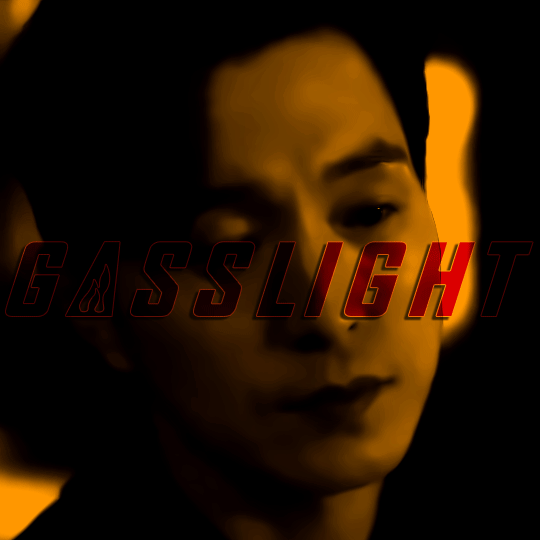


mansplain manipulate malewife coming soon...
@asiandramanet ✧ jan-feb bingo ✧ typography
#does this make sense#asiandramanet#asiandramasource#kdramaedit#kdrama#userxlh#uservivs#lextag#userfra#<3#weiwuz#weiwuzedits#bad and crazy#Ryu Soo Yeol#Shin Joo Hyuk#lee dong wook#wi ha joon#kdramadaily#well it does to me#at least the first two#and sooyeol is a girlboss bc he got away with some corruption idk#usersbru#tusermona#seamayweed
113 notes
·
View notes
Text
if i was to upload a 5.2k word analysis of Will Wood's 'Suburbia Overture' and how its an incredible criticism of the middle class, gated community, nuclear family, white suburban lifestyle, and how that life and the standards and expectations it enforces are a danger to the concept of individuality ft. a LOT of lyrical analysis how many of y'all would read it,,,,
EDIT: ITS UPLOADED Y'ALL <3333
#onyx fandom posting#onyx is rambling#will wood#will wood and the tapeworms#wwatt#wwattw#wee woo#wi wo#william woodiam#will wood the normal album#the normal album#will wood tna#suburbia overture#greetings from the marybell township#(vampire) culture#love me normally#suburbia overture / greetings from the marybell township! / (vampire) culture / love me normally#<33#:3
87 notes
·
View notes
Text
transfem vil: broke
gender-fluid vil: woke
transmasc vil: bespoke
#ngl i could see any of these#transfem vil doesn’t really work with the point of vil’s story but i understand why someone would say that#gender-fluid vil has a special place in my heart and is probably how i would write him just because. it works.#but TRANSMASC VIL. dude. it makes his dynamic with epel and his choice to present feminine most of the time SO much more interesting!!#like. okay so we can all agree that epel is transmasc too right? right. he’s a baby trans guy. vil is his trans therapist.#his mentor in transness. so vil is teaching epel to be less insecure about appearing feminine. he’s helping epel become more comfortable wi#and teaching him how to take care of himself. fuck yes i love that#ok well that was my essay thx for reading this far :3#twisted wonderland#twst#twst wonderland#vil shoenheit#disney twst#disney twisted wonderland#twst vil#twisted wonderland vil#vil twst#vil schoenheit#twst headcanons#vil twisted wonderland
54 notes
·
View notes